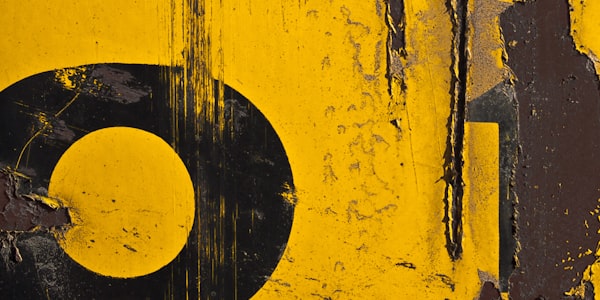Last night’s Carte Blanche (pronounced karty-blarnchy) program on M-Net was Battle of the Brains: a BBC special on how seven genii in their respective fields were given a set of tasks to perform in an attempt to discover the cleverest. One of the tasks set was to create a picture in 10 minutes with theme “the creative process.” And to assess the result, rather than asking a panel of art experts to rate the works, the producers asked the public for their views, noting that when it comes to aesthetic judgments, public opinion is by far the most reliable measure. So why is public opinion so disregarded for wine assessments?

The BBC producers decided to embrace the Wisdom of Crowds, which according to James Surowieki, author of the book by the same name (Abacus, 2005), is a smart (and free) way to solve a problem. This deceptively simple idea, that large groups of people are smarter than an elite few — no matter how gifted — has profound implications for wine competitions and restaurant and wine guides. Of course, as with most good ideas, this one would not have surprised Plato or Socrates with participatory democracy (slaves and women excepted) extended to all civic decisions in ancient Greece.
The vinous analogy is that public opinion at wine shows like those of Juliet Cullinan or Mike Fridjhon’s WineX produces a result far more reliable than the dozen or so tasters for the annual Platter’s wine guide, judging panels of wine competitions or a Cape Wine Master AGM. And the dreaded conflict of interest conundrum, which tarnishes so much informed opinion in the gustatory arts, is neatly avoided.
The website proclaims “the most effective way to restrict democracy is to transfer decision-making from the public arena to unaccountable institutions: kings and princes, party dictatorships, or professional wine critics.”
When the curtain descends on the annual Platter tasting marathon, the spittoons are emptied and around 5000 empty bottles are carted off for recycling, arguments about the pros and cons of blind tasting come to the fore. Each camp has a string of arguments nearly as numerous as the styles of Riedel glasses, but perhaps the worst feature of sighted tastings is that producers are asked to supply a list of awards already achieved by the wine – leading to a second order effect that a wine becomes famous for being famous. Which signposts the slippery slope to celebrity cuvées like those of Mexican guitar god Carlos Santana, perpetual bachelor boy Cliff Richard and the “big easy”, Ernie Els.
While vertiginous vineyards can make great wine, when it comes to ranking them, the playing fields need to be level. But with many producers such as Springfield and Thelema still resisting the siren calls of pricey wine shows (Meerlust eventually caved in after much soul searching by Hannes Myburgh), track records are necessarily biased to favour those with deep marketing pockets, long arms and faith in the show system. Far better for tasters to make up their own minds and risk being ridiculed for rubbishing a Trophy winner or boosting a Veritas no medalist (a rare avis indeed) to the rafters. In effect, leaving it to the wisdom of crowds.
Deep down, everybody resents an expert, especially a wine pundit. The London Review of Books notes “common sense has always suspected that connoisseurship was just snobbery tricked out as expertise, and that wine connoisseurship was one of the purest forms of pretence.” Surowieki supplies an alternative with a seductive pseudo-scientific explanation of why you’re better off asking a bunch of people how many jelly beans are in a jar and then averaging the answers, rather than phoning the friendly MD of Beacon Sweets for his opinion.
Points are made and proved by anecdotes – locating a sunken US navy submarine, the behaviour of the stock prices of the companies that built the space shuttle after the Challenger exploded, why an internet search engine called Google is worth more than the GDPs of some medium-size countries – and a deeper truth is teased out from these disparate incidents: expert opinion is often unreliable and you’re usually better off asking the opinion of a crowd. “If you want to make a correct decision or solve a problem, large groups of people are smarter than a few experts” although this algorithm clearly failed on the question of whether the earth was flat in pre-renaissance times.
But it certainly works for Google, which reckons the more people that visit an internet page, the more authoritative it is, a business model that made the company worth more than Time Warner. The wisdom of crowds is also used by epicurious.com (“the world’s greatest recipe collection”), which awards recipes a number of forks according to their popularity while the star ratings of titles on Amazon.com are a crowd response, even if many of the rave reviews are contributed by the very authors of the books themselves, under assumed persona.
Another drawback to picking by poll is the self-perpetuating nature of choosing something because other people buy it, the success of the Harry Potter novels and Dan Brown’s Da Vinci Code being salutary cases in point. But like it or not, more and more choices are being made on the basis of rankings.
Surowiecki’s requirements for a smart crowd are simple:
1. the crowd should be diverse;
2. the crowd should be decentralized so no individual can coordinate responses;
3. opinions must be summarized into a collective verdict;
4. members of the crowd should be independent.
A given at most wine festivals.



